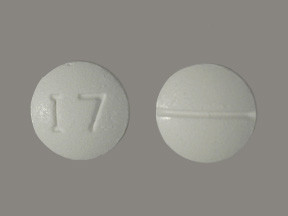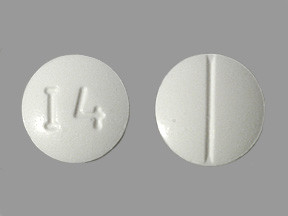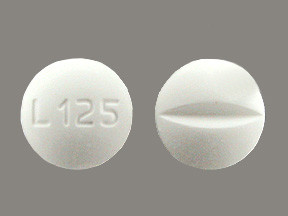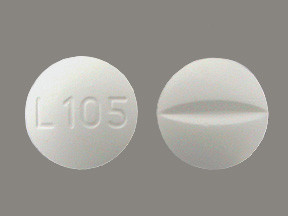MEPROBAMATE - ORAL
PHONETIC PRONUNCIATION: (meh-PRO-buh-mate)
COMMON BRAND NAME(S): Equanil
GENERIC NAME(S): meprobamate
Uses
USES: This medication is used short-term to treat symptoms of anxiety and nervousness. It acts on certain centers of the brain to help calm your nervous system.
How to use MEPROBAMATE - ORAL
HOW TO USE: Take this medication by mouth with or without food, usually 2 to 4 times daily or as directed by your doctor. Dosage is based on your age, medical condition, and response to treatment. Adults should not take more than 2400 milligrams in a 24-hour period. Do not increase your dose or take this medication more often than prescribed. Your condition will not improve any faster, and the risk of serious side effects may be increased. If this medication has been used regularly for a long time or in high doses, withdrawal symptoms (such as vomiting, shakiness, confusion, and rarely seizures) may occur if you suddenly stop using this medication. To prevent withdrawal reactions, your doctor may reduce your dose gradually. Consult your doctor or pharmacist for more details, and report any withdrawal reactions right away. When this medication is used for a long time, it may not work as well. Your doctor may need to increase your dose or change your medication. Talk with your doctor if this medication stops working well. Though it helps many people, this medication may sometimes cause addiction. This risk may be higher if you have a substance use disorder (such as overuse of or addiction to drugs/alcohol). Take this medication exactly as prescribed to lower the risk of addiction. Ask your doctor or pharmacist for more details. Tell your doctor if your condition persists or worsens.
Side Effects
Precautions
Interactions
Overdose
Images
Reviews
Faq for MEPROBAMATE - ORAL
Meprobamate - Oral is a medication that belongs to the class of drugs known as sedatives or tranquilizers. It is used to treat anxiety and tension associated with certain conditions.
Meprobamate - Oral works by enhancing the effects of a naturally occurring chemical in the body called gamma-aminobutyric acid (GABA). This helps to calm the brain and nervous system, alleviating anxiety and tension.
Meprobamate - Oral is primarily used to treat anxiety and tension associated with various conditions, such as anxiety disorders, psychosomatic disorders, and muscle spasms.
Meprobamate - Oral is usually taken as directed by your doctor, typically 3 to 4 times daily. It can be taken with or without food. It is important to follow the prescribed dosage and not exceed it.
Some common side effects of Meprobamate - Oral include drowsiness, dizziness, headache, blurred vision, nausea, and stomach upset. If these side effects worsen or persist, it is important to inform your doctor.
It is generally advised to avoid alcohol while taking Meprobamate - Oral. Alcohol can increase the sedative effects of this medication and may result in excessive drowsiness or impaired coordination.
Yes, Meprobamate - Oral should be used with caution in patients with a history of substance abuse, liver or kidney disease, or respiratory conditions. It may also interact with certain medications, so it is important to inform your doctor about any other medications you are taking.
Yes, Meprobamate - Oral has the potential for abuse and dependence, especially with prolonged use or higher doses. It is important to take it as prescribed and not abruptly discontinue the medication.
Meprobamate - Oral may cause drowsiness and dizziness, which can impair your ability to drive or operate machinery safely. It is advised to avoid such activities until you know how this medication affects you.
Disclaimer
IMPORTANT: HOW TO USE THIS INFORMATION: This is a summary and does NOT have all possible information about this product. This information does not assure that this product is safe, effective, or appropriate for you. This information is not individual medical advice and does not substitute for the advice of your health care professional. Always ask your health care professional for complete information about this product and your specific health needs.




No Reviews Yet